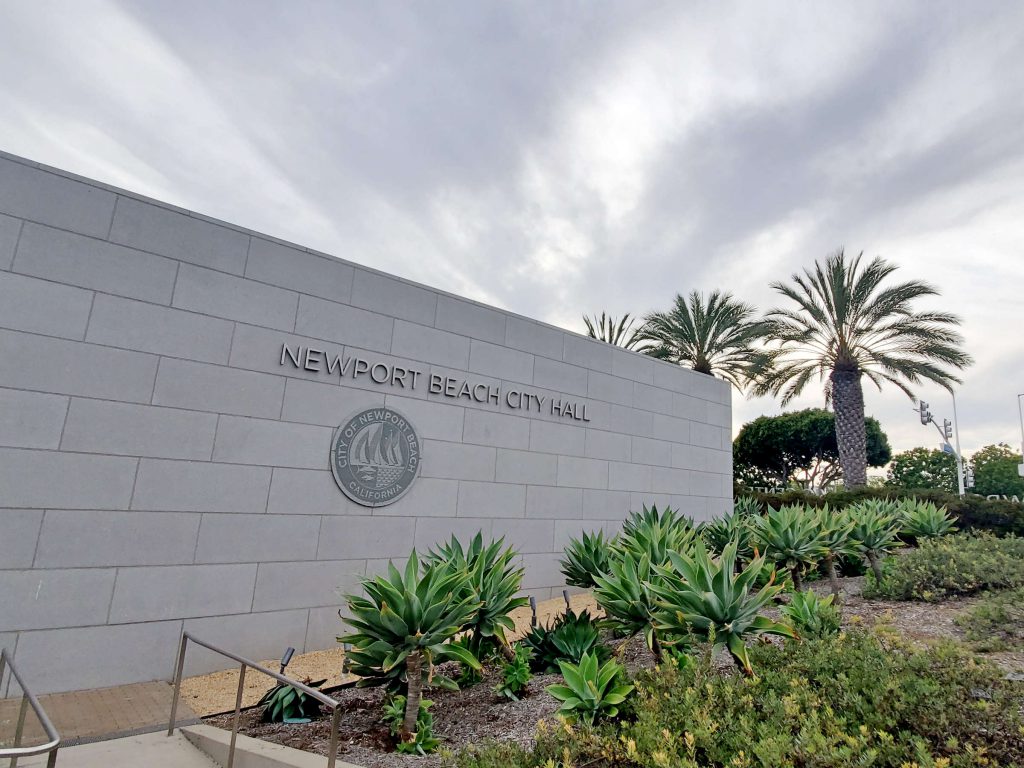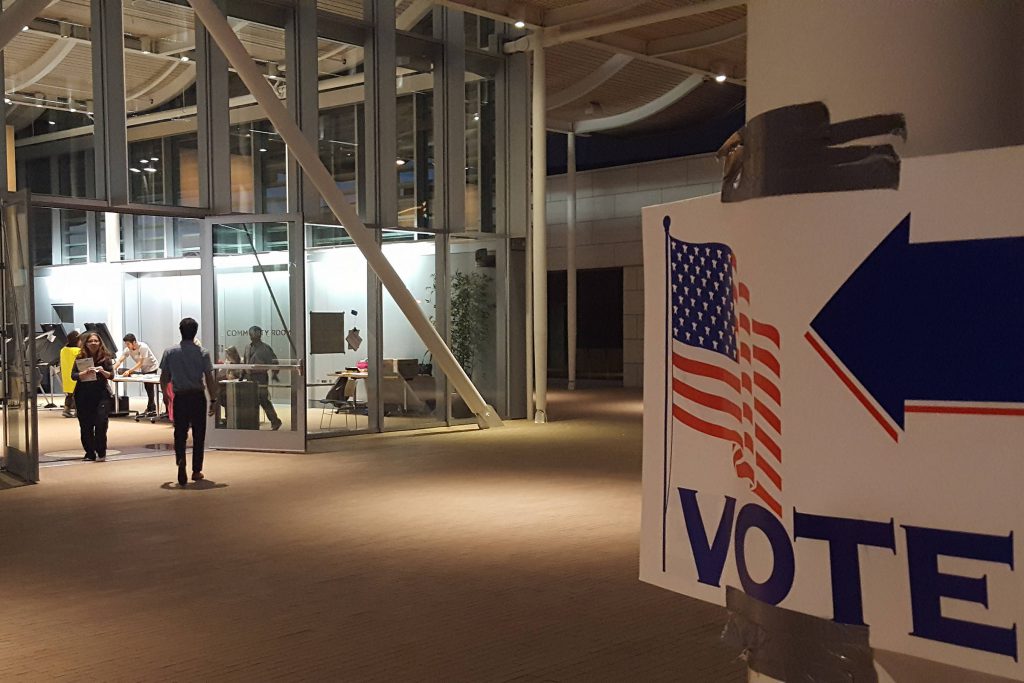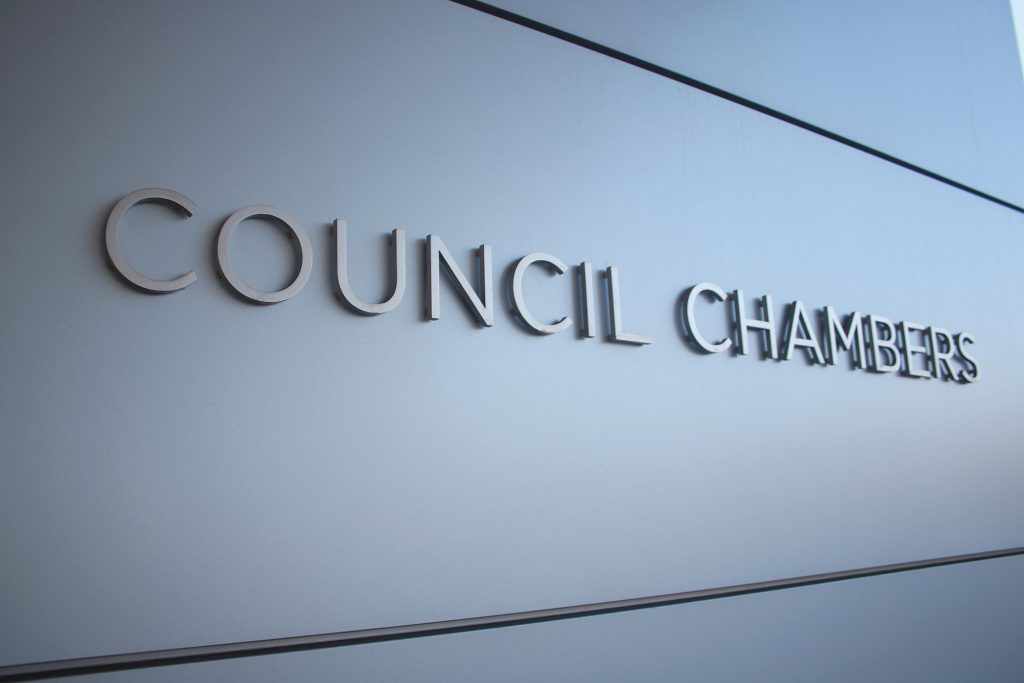The city moved forward with some election reform measures this week, as the Newport Beach City Council unanimously approved modifying the regulations governing campaign contribution and expenditure limits, and imposing lobbyist registration, reporting and disclosure requirements.
Council voted 6-0 on the item during Tuesday’s Council meeting. Councilman Kevin Muldoon was absent.
It’s been a longtime passion of his, said Councilman Jeff Herdman, who originally brought the issue forward.
“I’ve carried the cause for years,” noted Herdman, who told a story about speaking on the issue before a different Council about five years ago. “I’ve been walking with this for a long time. It’s one of the reasons I ran for City Council.”
He is completely satisfied with the Committee’s recommendation, Herdman said, and there was a lot of work on the issue. It appears that his concerns were addressed, he pointed out.

— Photo by Sara Hall ©
“Knowing that if something isn’t going to work as it should the door is open for further discussion about reform,” Herdman said. “We all need to give it a chance.”
Several Council members and others thanked Herdman for bringing the topic forward.
“If this doesn’t work then we come back to the drawing board,” Herdman said. “As long as the door is open to that, with this Council or future Councils, then I am perfectly satisfied that we are making a good attempt here to bring about the reform that is needed in this city.”
On April 9, City Council formed an Ad Hoc Committee on Election Reform to determine whether the provisions of the Newport Beach Municipal Code should be modified or updated. After several Committee meetings and a public meeting, the Committee is recommended that the City Council adopt ordinances: Modifying the regulations governing campaign contribution and expenditure limits; and establishing lobbyist registration, reporting and disclosure requirements.
As city staff explained it, the primary changes to the campaign contribution and expenditure limits regulations include: The adoption of procedures for donors and candidates to cure inadvertent/unintentional violations; and the modification of procedures to hold donors and candidates responsible for intentional violations.
Under the new ordinance, donors and candidates would have 14 days from discovery/notice of an inadvertent/unintentional violation of the regulation limiting campaign contributions to take action to cure the violation, the staff report explains. If the donor or candidate fails to take action to cure an inadvertent/unintentional violation within this time or if there is willful violation of the law, the person would be subject to referral for prosecution by the Orange County District Attorney.
The Committee decided not to recommend limiting fundraising to one year prior to an election because it would give an unfair advantage to incumbents, self-funded candidates, and persons making non-coordinated independent expenditures.
Tuesday’s action also included approval of an ordinance imposing lobbyist registration, reporting and disclosure requirements.
Committee members recognized the importance of ensuring city representatives and the public know when someone is being compensated to try and influence decisions related to: The adoption of an ordinance, resolution, regulation or policy; the decision to grant or deny any permit, license or other entitlement of use; the award of a contract or grant; or litigation.
According to the new ordinance, a lobbyist (someone who receives compensation of $500 or more in a calendar month or has a fee agreement for engaging in lobbying activities), would need to register with the Orange County Campaign Finance and Ethics Commission within 10 days of qualifying as a lobbyist and annually thereafter if the person continues to qualify as a lobbyist.
Lobbyists will now be required to identify himself/herself when lobbying city representatives and disclose on whose behalf the lobbying contact is being made.

— Photo by Christopher Trela ©
A lobbyist would be prohibited from: Doing any act that would place a city representative under personal obligation to the lobbyist; deceiving a city representative; or representing that the lobbyist can control or obtain the vote of any city representative.
Violation of the ordinance would be subject to fines and/or civil penalties.
The ordinance will become effective dependent on approval by the Orange County Board of Supervisors.
During public comment, many residents had concerns when the process started, some which still do today, about the composition of the committee and the amount of public input.
A lot of residents didn’t know about the public meeting, Jennifer McDonald noted.
“Of the people who did attend that public meeting there was not a lot of enthusiasm for what was being done,” McDonald said. “I don’t think anyone really felt satisfied that this is a reform, that this is a real fix to the problems that we have.”
She also had concerns that the “non-stop” fundraising was not properly addressed. The current rules favor incumbents, she noted. Also developers and other special interests can give money to Council members after they are elected, but before their re-election campaign.
“It creates a sense of distrust in the community,” McDonald said.
It seems that the committee doesn’t feel these problems are as important, she commented. The consequences are not harsh enough for the violations, she added.
“Why are we setting the bar so low? Why are we saying, ‘Well, this is better than nothing,’” McDonald said. “Why are we rushing this through?”
She suggested collecting more public input and creating something everyone can get behind.
Several residents echoed her concerns, saying there needs to be more public input.
Mayor Pro Tem Will O’Neill said the process isn’t “weak,” as one resident labeled it. O’Neill explained that a violation gets sent to the OCDA, who could convict the person of a misdemeanor, which would result in the person being removed from office.
“That is about as serious as you can get up at the dais level,” O’Neill commented.

— Photo by Sara Hall ©
The OC District Attorney is the chief prosecutor in the county, he continued. So suggesting that it go through the city attorney and to a special prosecutor is “absurd,” O’Neill said.
“This is not the Mueller report,” O’Neill said. “We’re trying to make sure bad actors are sent for prosecution and we make it as clear as possible to the district attorney to make sure that (they are prosecuted).”
There have been seven months of open communication after the committee was formed, O’Neill noted. There is no need to “bog down” and delay the process, he added.
Councilwoman Joy Brenner emphasized the importance to monitor the process and make sure it’s working, an idea several Council members agreed with.
If it needs to come back to Council, they need to do it sooner rather than later, she added.
The Committee tried to strike a balance, said Councilman Brad Avery.
It’s not a “gotcha” situation, the intent is important, he noted. They didn’t want to “go over the top” and tried to show some restraint, Avery added.
The community deserves a fair process, Avery commented.
A few residents noted that it was a step in the right direction.
“You are on the right track and I really hope you stay on it,” Portia Weiss commented.




